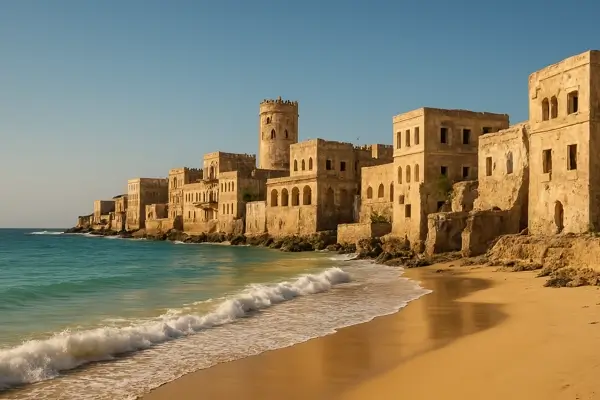
Longest Coastline in Mainland Africa – Somalia has the longest coastline on mainland Africa, stretching over 3,300 kilometers along the Indian Ocean and Gulf of Aden.
Ancient Maritime Traders – Somalia was part of ancient maritime trade routes, linking Africa, the Middle East, and Asia. Cities like Mogadishu, Zeila, and Berbera were major trading ports for centuries.
Rich Cultural Heritage – Somalia has a strong tradition of oral poetry, music, and storytelling. Poets are highly respected, and Somali poetry is considered one of the richest in Africa.
One of the Oldest Ethnic Groups in Africa – The Somali people have inhabited the Horn of Africa for thousands of years and share a strong language, culture, and clan-based society.
Islam as a Core Identity – Islam plays a central role in Somali life. Nearly 100% of the population is Muslim, and Islamic principles are deeply woven into culture and daily life.
The Camel Capital of the World – Somalia has the largest population of camels in the world, and camels play a key role in Somali society as a source of milk, meat, transportation, and status.
Unique Language and Script – The Somali language belongs to the Cushitic branch of the Afro-Asiatic family. Its official script is Latin-based, adopted in the 1970s.
Geostrategic Location – Situated near the Bab el-Mandeb Strait, Somalia occupies a strategic position connecting the Red Sea and Indian Ocean, a key route for international shipping.
Nomadic Traditions – Many Somalis traditionally live a nomadic or semi-nomadic lifestyle, herding livestock and moving seasonally for water and pasture.
Resilient People and Diaspora – Despite decades of conflict, the Somali people are known for their resilience, and the Somali diaspora around the world is active in business, politics, and culture.
